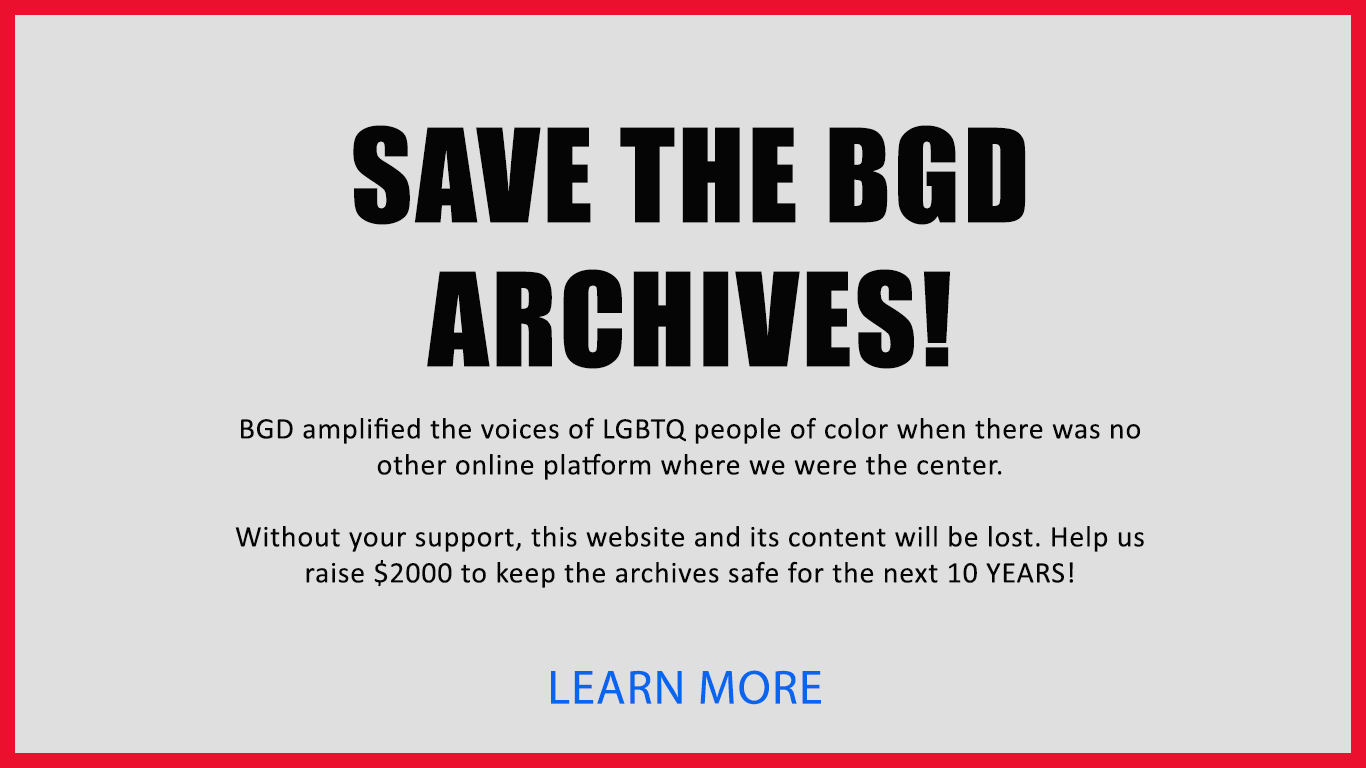by CarmenLeah Ascencio

[Black woman with brown curly hair enjoying snowfall. Image by © Daniel Koebe/Corbis]
BGD is a reader-funded non-profit.
GIVE BACK and help amplify QTPoC voices.
So here are seven things that we can do to support our winter sadness with understanding rather than pathologizing.
- Don’t struggle. Surrender and be tender with your sadness. Your sadness is not wrong. Your sadness is not bad. It is a very U.S. capitalist concept that we must always strive to be happy and if we are not happy something is wrong (“happy” is a very profitable commodity). There are many, many reasons to be sad (like, for example, the way oppression impacts us and our loved ones daily). The idea that we should be happy under conditions of oppression and inequality is quite the paradoxical mind fuck when you think about it. Pain is real and should be acknowledged. Pain can be our friend, because it opens the pathway to getting our deepest needs met. Rather than try to “fix” yourself or continue to ask yourself, “Why am I so sad? What’s wrong with me?”, surrender to the fact that you are sad. See your sadness. Feel your sadness. Breathe into it. Caress it. Turn towards your sadness and say, “Hello dear. What do you need from me today?”
- Warm up your body. The winter brings cold that creates tightness and tension in the body. Tension creates stress and stress increases fatigue and depressed mood. Here are just a few ways you can warm up your body: cuddle more, drink delicious warm things (buy a special mug for these delicious warm things), wear bright and colorful layers and practice self-massage with warm oil (this is known as Abhyanga in Ayurveda, an Indian health science/medicine).
- Move your body. The cold is causing your body to fold in on itself and become stiff. Stiffness stops energy from moving and creates hunching in the upper body, which creates depressed mood and fatigue. Don’t believe me, hunch up your shoulders, slightly bend over and walk around like this for a few minutes. How does it feel? Good? Nope. Now open the shoulders and broaden the chest. Allow the head to rise up and deepen your breath. What do you notice? The body needs to move in order to help uplifting energy to flow and to support postures that elevate mood. So, this winter, stretching, dance, yoga, martial arts, running, and walking, are super, super essential. I know it’s hard to do this when you are sad, so get a buddy who’s dealing with the same thing. I promise you’ve got one.
- Explore what you love about the darkness. Don’t escape it. Walk into in. The darkness brings gifts of her own. She brings time for introspection, time to be inside with loved ones, time for magic, time for solitude, time for quiet. She forces us to slow down and rest more. What magic can you find in the darkness? Can you see the moon more clearly? Does it help your journaling? Can you connect to Spirit and your ancestors more easily? Does it help with prayer? Ask yourself, “What is beautiful about the darkness?”
- Check your vitamin D levels. A common contributing factor to our winter blues is vitamin D deficiency, because we lack sun exposure. And people of color, especially darker-skinned people of color, are more prone to vitamin D deficiency. Before you start taking vitamin D supplements, go to the doctor to get a blood test to see if this is the case for you.
- Don’t hide your sadness; share it. Because this shift in energy is so natural, many, many other people around you are going through the same thing. Yet because we are told we should be happy all the time, no one is sharing it! You needn’t suffer alone this season. I promise, at least half of your friends are sad, too. In sharing your sadness, you can normalize it, provide it with company, and help liberate others from the illusion that something is wrong with them when the seasons change.
- Appreciate your connection to nature and do what she does. During the winter the natural world covers herself with snow and allows her leaves to die and fall away. In the spring, this snow turns to water, nourishing the soil so new life can grow along with the rising sun. Winter is the time for you to let go, to allow that which no longer serves you to die, and to cover yourself with nourishment, so that you can blossom once again in the spring. Remember how your ancestors followed the rhythms of nature to survive, and strengthen your connection to your history as you learn to re-connect to the natural world.
When I surrender to the beauty and challenge of the changing of the season, I can more easily meet my experience with peace and acceptance. Of course, the irony is that when I stop resisting the change, when I stop pathologizing what seems so natural, I find a way through the darkness with a light that radiates from within me.
 CarmenLeah Ascencio is a public health social worker, radical therapist & life coach, trauma-sensitive yoga instructor, educator and proud Boricua femme queer. She is the BGD wellness columnist and the creator of Freedom Labor Love. She speaks and facilitates BGD Get Free workshops at organizations and schools. To find out about booking CarmenLeah, go here.
CarmenLeah Ascencio is a public health social worker, radical therapist & life coach, trauma-sensitive yoga instructor, educator and proud Boricua femme queer. She is the BGD wellness columnist and the creator of Freedom Labor Love. She speaks and facilitates BGD Get Free workshops at organizations and schools. To find out about booking CarmenLeah, go here.













